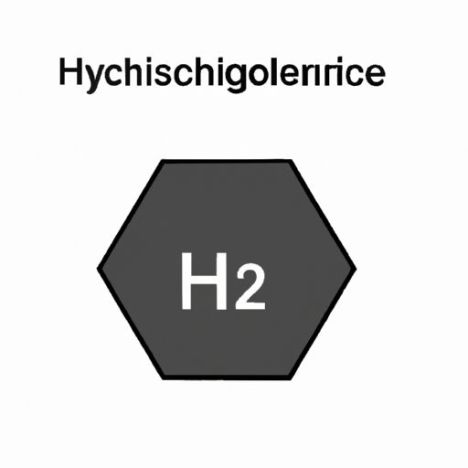Table of Contents
Benefits of Using HFC 245fa Industrial Grade Hydrocarbon in Manufacturing Processes
Hydrocarbon HFC 245fa, also known as 1,1,1,3,3-pentafluoropropane, is an industrial grade hydrocarbon that is widely used in various manufacturing processes. This versatile compound offers a range of benefits that make it a popular choice for industries such as foam insulation, refrigeration, and electronics manufacturing.
One of the key advantages of using HFC 245fa in manufacturing processes is its excellent thermal insulation properties. This hydrocarbon has a low thermal conductivity, which makes it an ideal choice for applications where heat transfer needs to be minimized. This can help improve the energy efficiency of manufacturing processes and reduce overall operating costs.
In addition to its thermal insulation properties, HFC 245fa also has a low global warming potential (GWP). This means that it has a lower impact on the Environment compared to other hydrocarbon compounds. By using HFC 245fa in manufacturing processes, companies can reduce their carbon footprint and contribute to sustainability efforts.
Furthermore, HFC 245fa is non-toxic and non-flammable, making it a safe choice for use in manufacturing processes. This reduces the risk of accidents and ensures the Safety of workers and equipment. Additionally, this hydrocarbon is compatible with a wide range of materials, making it easy to integrate into existing manufacturing processes.
Another benefit of using HFC 245fa in manufacturing processes is its versatility. This hydrocarbon can be used in a variety of applications, including as a blowing agent in foam insulation, a refrigerant in cooling systems, and a solvent in electronics manufacturing. Its compatibility with different materials and processes makes it a valuable asset for manufacturers looking to improve efficiency and performance.
Moreover, HFC 245fa is a cost-effective solution for manufacturers. Its thermal insulation properties can help reduce energy consumption, leading to lower operating costs. Additionally, its compatibility with existing equipment and processes means that companies can easily integrate HFC 245fa into their operations without the need for major investments or modifications.
 Overall, the benefits of using HFC 245fa in manufacturing processes are clear. From its excellent thermal insulation properties to its low environmental impact and safety profile, this industrial grade hydrocarbon offers a range of advantages for companies looking to improve efficiency, reduce costs, and enhance sustainability. By incorporating HFC 245fa into their operations, manufacturers can benefit from a versatile and effective solution that meets their needs and helps them achieve their goals.
Overall, the benefits of using HFC 245fa in manufacturing processes are clear. From its excellent thermal insulation properties to its low environmental impact and safety profile, this industrial grade hydrocarbon offers a range of advantages for companies looking to improve efficiency, reduce costs, and enhance sustainability. By incorporating HFC 245fa into their operations, manufacturers can benefit from a versatile and effective solution that meets their needs and helps them achieve their goals.
Environmental Impact of Hydrocarbon Solvents like HFC 245fa in Industrial Applications
Hydrocarbon solvents, such as HFC 245fa, are commonly used in industrial applications for their excellent solvent properties and low toxicity. However, the environmental impact of these solvents is a growing concern due to their potential contribution to air pollution and global warming.
One of the main environmental issues associated with hydrocarbon solvents like HFC 245fa is their high global warming potential (GWP). GWP is a measure of how much a given amount of a greenhouse gas contributes to global warming over a specific time period, usually 100 years. HFC 245fa has a GWP of 1030, which is significantly higher than that of carbon dioxide, the most common greenhouse gas.
The use of hydrocarbon solvents in industrial applications can also Lead to the release of volatile organic compounds (VOCs) into the atmosphere. VOCs are a group of Chemicals that react with nitrogen oxides in the presence of sunlight to form ground-level ozone, a major component of smog. Ground-level ozone can have harmful effects on human health, including respiratory problems and aggravation of existing lung conditions.
In addition to their impact on air quality, hydrocarbon solvents like HFC 245fa can also contribute to water pollution. Improper disposal of these solvents can lead to contamination of groundwater and surface water, posing a threat to aquatic ecosystems and human health. In some cases, hydrocarbon solvents have been found to persist in the environment for long periods of time, leading to bioaccumulation in the food chain.
To mitigate the environmental impact of hydrocarbon solvents in industrial applications, it is important for companies to adopt sustainable practices and technologies. This can include implementing pollution prevention measures, such as using closed-loop systems to minimize solvent emissions, and investing in alternative solvents with lower GWP and VOC emissions.
Furthermore, regulatory agencies play a crucial role in monitoring and enforcing environmental regulations related to the use of hydrocarbon solvents. By setting strict emission limits and promoting the use of environmentally friendly alternatives, governments can help reduce the environmental impact of industrial activities.
Transitioning to more sustainable practices in the industrial sector is not only beneficial for the environment but also for businesses. By reducing their reliance on hydrocarbon solvents and adopting cleaner technologies, companies can improve their reputation, attract environmentally conscious customers, and comply with increasingly stringent environmental regulations.
In conclusion, the environmental impact of hydrocarbon solvents like HFC 245fa in industrial applications is a significant concern that requires immediate attention. By addressing issues such as high GWP, VOC emissions, and water pollution, companies can minimize their environmental footprint and contribute to a healthier and more sustainable future. It is essential for all stakeholders, including businesses, regulatory agencies, and consumers, to work together towards a greener and cleaner industrial sector.

